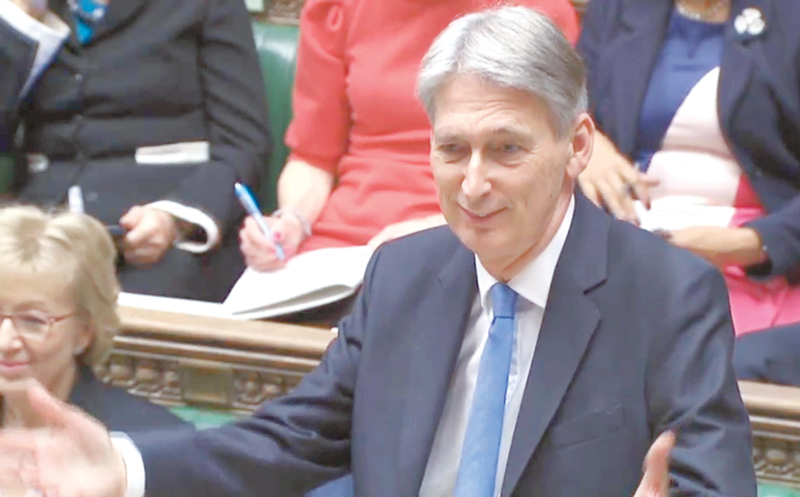

LONDON: Brexit-bound Britain slashed its economic growth forecasts and ramped up its borrowing plans going into the 2020s, but finance minister Philip Hammond (pictured) announced a number of spending steps aimed at winning back voters. Hammond was under heavy pressure to use his budget statement on Wednesday to turn around the fortunes of Prime Minister Theresa May. Some lawmakers, still smarting from an election mauling in June, had even called on May to fire him for his cautious approach to Brexit and to the public finances.
But Hammond looked relaxed and cracked jokes as he said he would offer help to voters by abolishing a property purchase tax for 80 per cent of first-time home-buyers, keeping a freeze on fuel duty and spending more on the health service.
He also committed £44 billion ($58 billion) - 15 billion of it new money - over five years to deliver 300,000 new homes a year by the mid-2020s, addressing Britain’s acute housing shortage.
After Brexit supporters criticised him for starving ministers of funds to prepare for leaving the EU, he earmarked an extra 3 billion pounds for Brexit readiness.
Hammond said he was sticking to the Conservatives’ priority since coming to power in 2010 of fixing the public finances.
“We took over an economy with the highest budget deficit in our peacetime history,” he told parlia-
ment.
“Since then, thanks to the hard work of the British people, that deficit has been shrinking and next year will be below 2 per cent. But our debt is still too high,” he said.
Despite that message, Britain’s official budget watchdog said the spending plans for the next two years were a “significant giveaway”.
Britain is set to borrow £29.1 billion more by the end of the 2021/22 tax year than it expected eight months ago.
“The chancellor has been bolder than widely expected and has bowed to pressure to ease the near-term pace of the fiscal consolidation,” Samuel Tombs, an economist with Pantheon Macroeconomics, said.
— Reuters
Oman Observer is now on the WhatsApp channel. Click here



